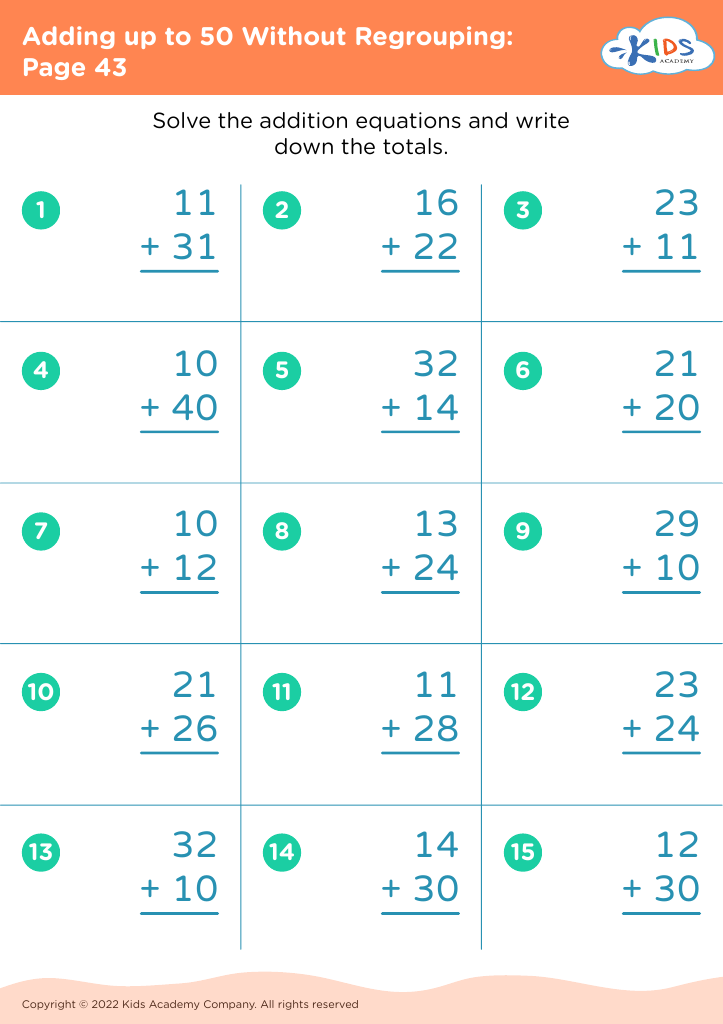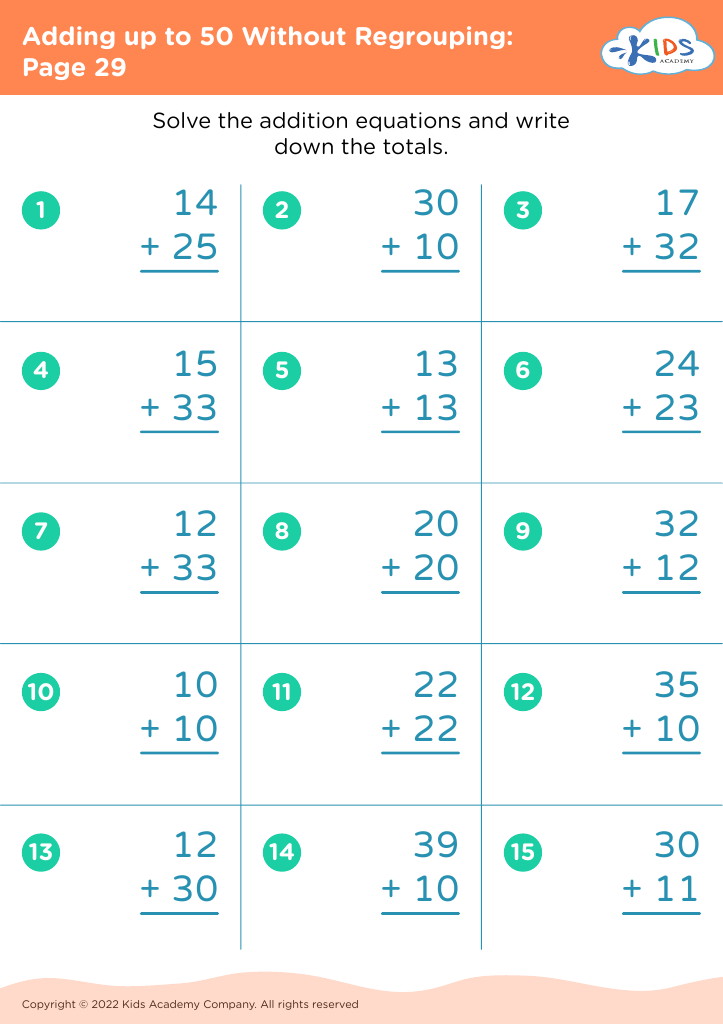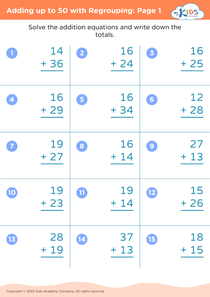Recognizing Patterns Adding up to 50 Without Regrouping Worksheets for 7-Year-Olds
4 filtered results
-
From - To
Explore our "Recognizing Patterns Adding up to 50 Without Regrouping Worksheets" designed specifically for 7-year-olds. These engaging worksheets enable young learners to become proficient in identifying numerical patterns while enhancing their addition skills. By practicing addition up to 50 without regrouping, kids will develop confidence and fluency in math. Our thoughtfully crafted exercises encourage students to recognize relationships between numbers, fostering critical thinking and problem-solving abilities. Ideal for both classroom settings and at-home learning, these worksheets make mastering addition an enjoyable experience. Help your child build a solid foundation in mathematics with our fun and educational resources!
Recognizing patterns in adding up to 50 without regrouping is crucial for 7-year-olds as it lays a foundational understanding of math that will benefit them throughout their education. At this age, students are transitioning from simple addition to more complex mathematical concepts. By recognizing patterns, children can develop proficiency in mental math, enhancing their problem-solving skills.
Understanding patterns facilitates faster calculations and enhances number sense, making mathematics less intimidating and more engaging. For instance, if a child notices that 20 + 30 easily equals 50, they can apply this concept to other problems, reducing reliance on physical objects or fingers for counting. This boosts their confidence and fosters independence in learning.
Additionally, recognizing patterns aligns with the Common Core standards, promoting critical thinking and analytical skills. It also encourages a deeper understanding of the relationships between numbers, which is essential for future concepts such as multiplication and division.
Ultimately, when parents and teachers emphasize recognizing patterns, they empower children to become self-sufficient learners. This ability not only influences their mathematical success but also nurtures a positive attitude toward learning, establishing a lifelong appreciation for mathematics. This foundational skill is therefore significant for both academic and personal growth.














